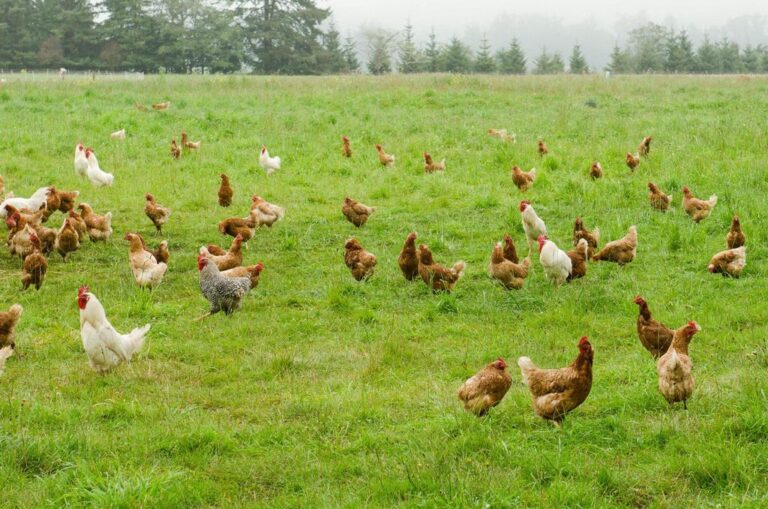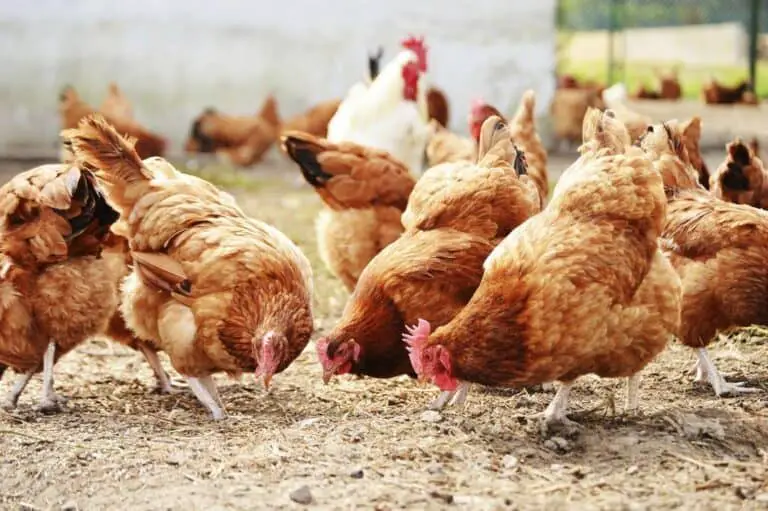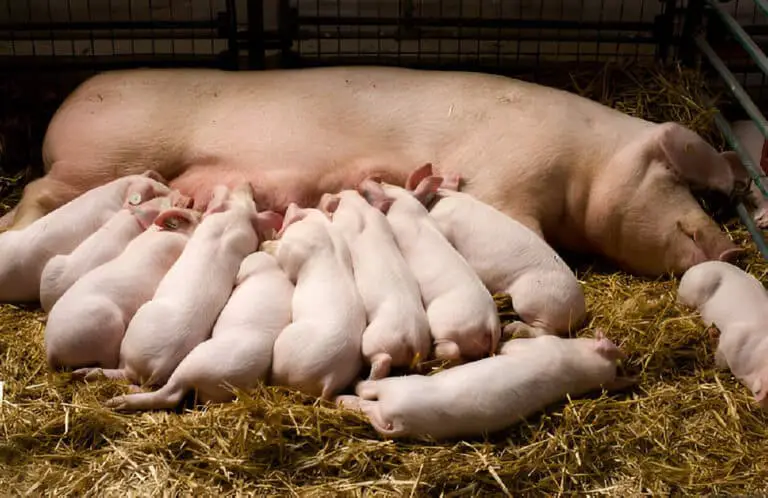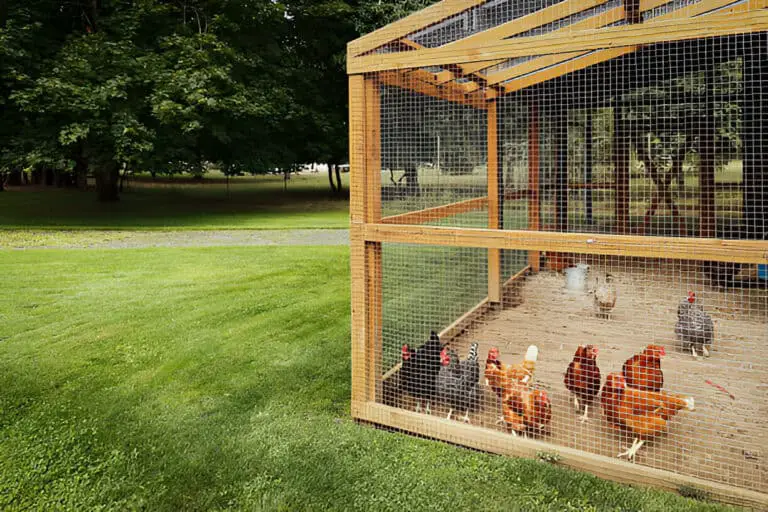Letting Chickens Free Range for the First Time: Transition from Coop to Outdoor
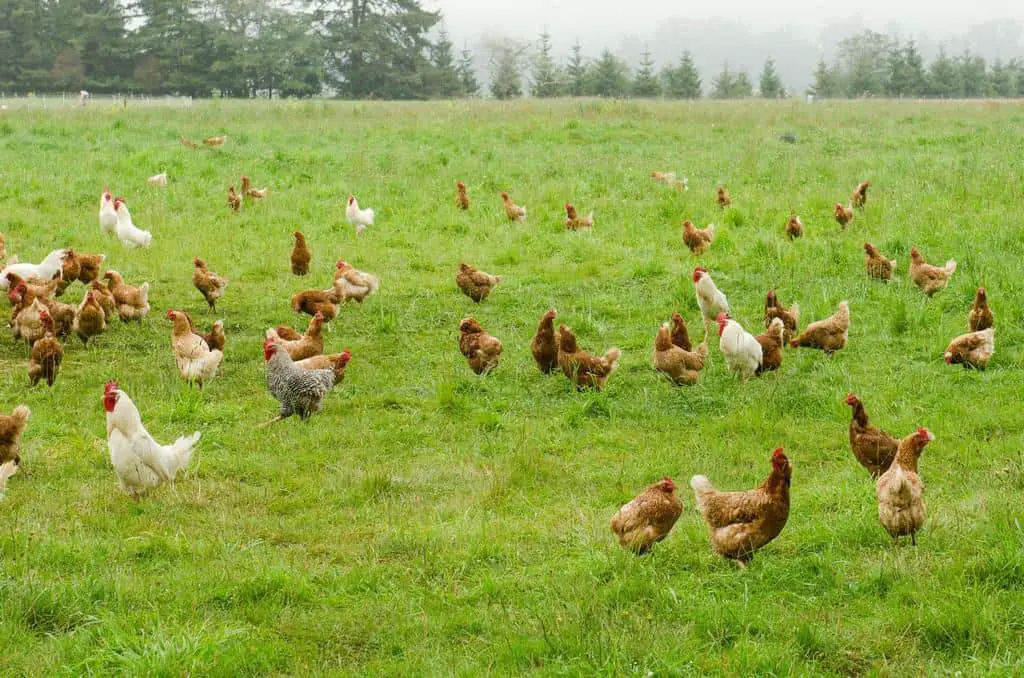
Are you tired of seeing your chickens cooped up all day with limited space to roam? Free-ranging chickens can not only improve their overall happiness and health, but also produce more flavorful and nutritious eggs.
Are you ready to let your chickens free range for the first time? If so, this article is for you. Here, we will explain why it’s important to transition your chickens from the coop to the outdoors.
From planning and preparation to challenges and observations, we’ll share it all. So come along for the journey as we discover the many benefits of free-ranging chickens!
The Benefits of Free-ranging Chickens
Free-ranging chickens have a number of benefits, both for the chickens themselves and for the people who keep them. One of the biggest benefits of free-ranging chickens is that they are able to live a more natural and healthy lifestyle.
Chickens are naturally curious, and they do best when they can roam around and look for food on their own. By letting them roam free, you give them the chance to do things that come naturally to them and are important for their health.
Free-ranging chickens are also beneficial for the environment. By foraging for food, chickens can help control pests and weeds, and they also help to fertilize the soil. This can be especially helpful for farmers or gardeners who want to keep a healthy, natural environment for growing things.
Chickens that are allowed to roam freely are often healthier and more disease resistant than those kept in a coop. They also lay eggs that taste better than those laid by chickens kept in cages.
Another benefit of free-ranging chickens is that they can be a source of entertainment and enjoyment. Many people find chickens to be fascinating and fun to watch, and they enjoy observing their behavior and interacting with them.
Chicken Free Range Transition Tips
When transitioning chickens from a confined coop to a free-range environment, there are several tips that can help make the process go more smoothly.
1. Introduce Your “Home Base” to the Chickens
To make your chickens feel like they have a place to call home, you should give them a coop or other enclosed space. This will serve as their “home base,” where they can lay eggs and roost.
Even though you want your chickens to have the freedom to roam, it is a good idea to keep them in this designated area for a few weeks before allowing them to explore. By doing this, they will develop a sense of familiarity and comfort with this spot. They will instinctively return to it to roost at night.
Providing treats such as scratch can be a useful way to lure your chickens back to their home base during the day, if needed. This will help them think of the coop or confined area as a good place and make it more likely that they will come back.
2. Gradual Introduction to New Free Environment
Gradually introducing the chickens to their new free-range environment is important. Start by letting them spend short amounts of time outside the coop. As they get used to it, slowly increase the amount of time they spend outside. This will help them become accustomed to their new surroundings and reduce stress.
3. Watch Where The Chickens Are Lying
I was surprised to discover that our first group of chickens were laying eggs when I found a batch of 18 eggs in the dog house. To prevent this from happening again, it is recommended to keep them confined to the coop for the first week or two of laying.
By providing comfortable nest boxes (one for every three or four hens), you will also help. You can also add fake eggs to the nests, as this will encourage the hens to lay their eggs in the designated area.
WARNING![]()
Be aware that there may be a rogue hen who insists on laying elsewhere. To detect this, you can keep your ears open for the “eggsong,” which is the noise chickens usually make when they lay an egg. This will help you locate any nests that are being built outside of the designated area.
4. Beware of Predators
When letting chickens run free, it’s important to think about the dangers that could come from predators. Make sure to protect your chickens from being harassed by dogs, cats, or other animals by keeping them in a secure area. Keep an eye out for birds of prey such as hawks and eagles, which may see your chickens as a tasty meal.
Provide your chickens with access to shelter at all times, so they have a place to hide if they sense danger. This can be in the form of a coop or a covered area where they can retreat quickly.
Consider getting a rooster, as their main instinct is to protect and guard their hens, and alert them of any potential danger. Roosters will act as a natural alarm system for your chickens.
Even with supervision during free ranging time, keep in mind that there is always a chance that a predator may attack your flock. So, take the right steps to keep your chickens safe from possible dangers.
5. Protect Young Garden Plants With a Fence
When allowing chickens to free range, keep in mind that they may be tempted to eat young garden plants or tender flower shoots. To protect these areas, consider fencing them off or covering them with chicken wire. This will prevent chickens from accessing these areas and causing damage to your garden.
Also, chickens that want to take a dust bath might be interested in freshly dug earth or mulched beds. To keep chickens from scratching up the soil in these areas, you might want to cover the soil with something like chicken wire or a board. This will protect the soil and allow it to settle while still allowing chickens to take dust baths elsewhere.
6. Always Have Fresh, Clean Water Available
Access to fresh, clean water is essential for the health and well-being of chickens. Make sure your chickens always have water by setting up multiple watering spots in the coop and where they will roam. This will ensure that they always have access to clean water, regardless of where they are.
Also, the water stations should be checked often to make sure they are clean and have fresh water. Chickens are prone to drinking dirty water, which can cause health issues, so it’s important to keep the water stations clean and fresh.
Having more than one watering station gives the chickens more choices and keeps them from crowding around a single station, which could make the water dirty.
7. Keep an Eye on the Weather
Keep an eye on the weather, because chickens may need extra protection from extreme cold or heat. In the summer, give them shade and water. In the winter, give them heat and shelter.
8. Monitor Chickens’ Behavior and Adjusting as Necessary
Keeping an eye on how your chickens act is an important part of making sure they are healthy and happy. Chickens are social animals, and they have a range of behaviors that are normal and healthy, such as foraging, dust bathing, and socializing with other chickens. But there are also things like not being active, being tired, or changing the way you eat that could be signs of a problem.
Keep an eye on your chickens to make sure they’re behaving normally. This includes monitoring their activity levels, eating habits, and overall health. If you see any changes in behavior, find out what’s going on quickly and take steps to fix the problem.
TIPS ![]()
One way to monitor your chickens is to keep a flock journal, which can help you track their behavior over time. This can help you identify patterns and changes in their behavior, which can be an early indicator of a problem.
Chickens’ behavior can change with the seasons, and you may need to adjust their care accordingly. For example, during the hot summer months, chickens may need more access to shade and water to stay cool, while in the colder months, they may require extra heat and protection from the elements.
How Long Before Letting New Chickens Free Range?
When you first get chickens, it can be tempting to let them out to free range right away. It is best to give them time to acclimate to their new home before letting them out to roam. We generally recommend that new chickens stay in the coop for at least two weeks before being allowed to free range.
During this time, the chickens will get used to their new home and learn that the hen house is a safe place to be. This will make them more likely to return to the coop at night and less likely to wander too far away from home.
Keeping the chickens in the coop for a few weeks can help stop any diseases or parasites they might have brought from their old home from spreading.
Please make sure that your coop and outdoor area are secure before letting your chickens out to free range. Chickens are susceptible to predators, so it’s essential to make sure that your coop is predator-proof and that your run is secure. This will help keep your chickens safe and reduce the risk of predation.
Will Free Range Chickens Return to Coop?
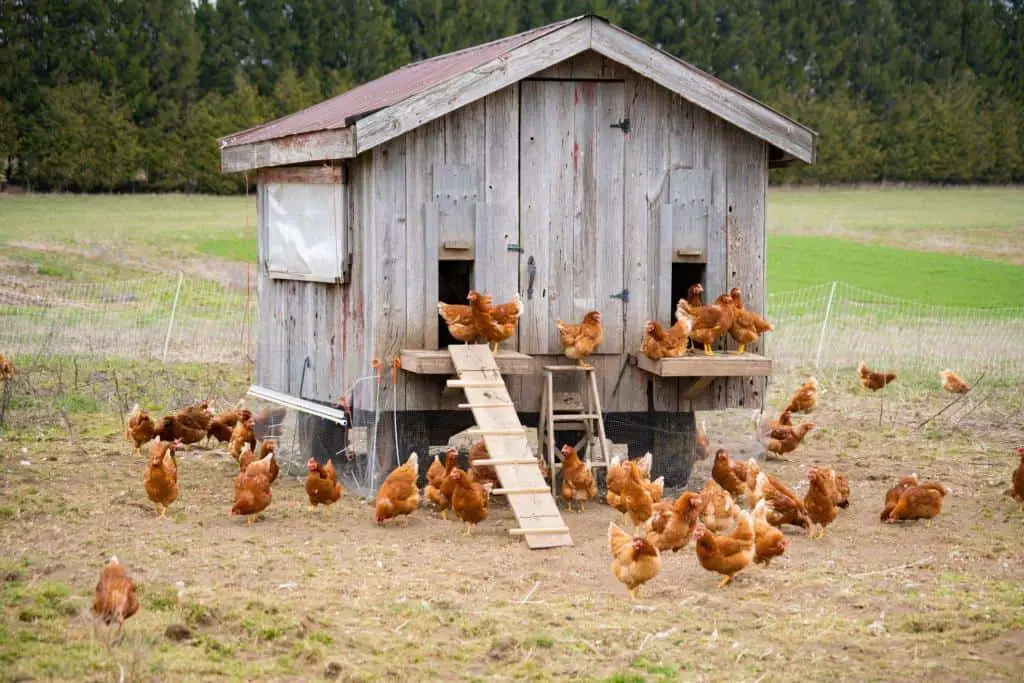
One of the biggest concerns is whether or not they will return to the coop at night. It is true that chickens are creatures of habit, and once they have formed a routine of returning to the coop, they will typically do so like clockwork.
If you have trained your chickens to associate the coop with safety and security, it is unlikely that they will break this habit.
One way to ensure that your chickens return to the coop is to make sure they are well-fed and well-rested before letting them out to free range. If they are hungry or tired, they may be less likely to return to the coop at night.
Make sure that the free-range chicken is well fed and that there is plenty of fresh water and food available inside. This will make the coop more appealing to the chickens and encourage them to return.
Another way to encourage your chickens to return to the coop is to provide them with a roost. Chickens are hardwired to seek out a high place to sleep at night, so a roost will provide them with a sense of security and make the coop a more attractive place to sleep.
It’s also important to note that chickens are social animals, and they tend to flock together. If one chicken sees other chickens returning to the coop, it is more likely to follow suit.


